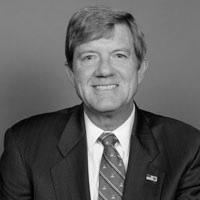Guest Column: A big step in the continued fight against opioid addiction

In 2016 and 2017, the Department of Health and Human Services estimated that more than 130 Americans died each day from an opioid-related drug overdose. Today, opioid overdoses are the leading cause of accidental death in the United States.
The fight against the opioid epidemic has received strong bipartisan support in Washington. In 2016, Congress passed and President Obama signed into law the Comprehensive Addiction and Recovery Act (CARA) and 21st Century Cures Act, both of which helped provide states with resources to expand opioid abuse and treatment efforts. In fact, since the 21st Century Cures Act became law, Colorado has received over $15 million in grant money to help meet the needs of our impacted communities.
After CARA and the 21st Century Cures Act were signed into law, I continued to travel across Colorado’s Third District to meet with the healthcare officials, law enforcement officers and first responders who are on the front lines of this fight and listen to their feedback. During these meetings it became apparent that while both bills were certainly a step in the right direction, there was more work to be done.
The opioid crisis is a multifaceted issue, and no one approach will bring it to an end. We must advance policies that facilitate prevention education and effective treatment, ensure law enforcement has the tools it needs to respond to bad actors trying to bring dangerous opioids across U.S. borders, and support health care professionals in their work to decrease prescribed addiction. During the 115th Congress, we worked together to introduce a series of proposals to address opioid abuse from every angle.
This past month, Congress passed, and President Trump signed into law a sweeping bipartisan package that includes more than 70 of the proposals that we introduced this Congress. The proposals included in the law, the SUPPORT for Patients and Communities Act, range from arming first responders with the overdose-reversing drug naloxone and providing law enforcement with more tools to help intercept deadly synthetic opioids at the border, to expanding Medicare coverage of substance abuse disorder treatments and services.
Included in this groundbreaking package was a proposal that I helped introduce called the Alternatives to Opioids (ALTO) in the Emergency Department Act, which specifically addresses the complex issue of prescribed addiction. While there are many different reasons why an individual may become addicted to opioids, all too often, addiction begins with an injury and a prescription to treat the pain. The ALTO Act will help remedy this issue by providing hospitals across the country with the resources to promote non-opioid pain treatments in emergency rooms.
The ALTO Act is based on a successful pilot program that was started by the Colorado Hospital Association and took place in 10 hospital emergency departments across our state. The program was so effective that the 10 participating sites were able to reduce the distribution of prescribed opioids by 36 percent over a six-month period. Now that this program will be replicated in hospital emergency departments across the nation, the impact will be profound.
I am proud of the work that has been accomplished thus far to confront opioid addiction. The SUPPORT for Patients and Communities Act is a big step and I have no doubt that this package of bills will help save countless lives. However, the opioid crisis cannot be solved overnight, and the work is still far from done. In the 116th Congress, Republicans and Democrats alike must continue to listen to the impacted families, healthcare providers and law enforcement officials back home and work together to address this national crisis.
I plan to continue these conversations back in Colorado’s Third District and I encourage you to share any ideas, background or knowledge that you may have on this issue with us by calling my Washington, D.C. office at 202-225-4761 or writing to me at www.tipton.house.gov.
Congressman Scott R. Tipton represents Colorado’s Third District. He serves on the House Committee on Financial Services and the House Committee on Natural Resources. He is Vice Chairman of the Financial Services Subcommittee on Oversight and Investigations Tipton is the Executive Vice Chairman of the Congressional Western Caucus and Co-chairman of the Congressional Small Business Caucus.



